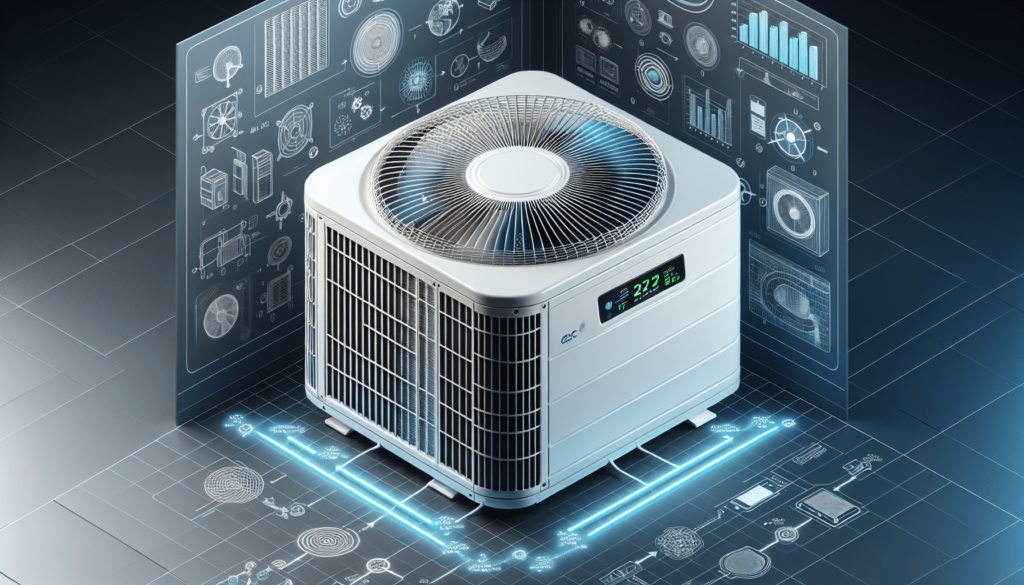Maintaining your air conditioning system is crucial for achieving optimal energy efficiency in your home or office. Regular A/C maintenance not only helps to ensure smooth operation and prevent breakdowns, but it also helps to improve the overall energy efficiency of the system. By keeping your air conditioner clean and well-maintained, you can save on energy costs and reduce your carbon footprint. Prioritizing A/C maintenance is a proactive step towards promoting sustainable living and preserving the environment. Have you ever wondered why your energy bills are so high in the summer months? The answer may lie in the maintenance of your air conditioning system. By neglecting regular upkeep on your A/C unit, you could be losing out on significant energy savings. In this article, we will explore the importance of A/C maintenance for energy efficiency and how it can impact your overall costs.
Understanding the Basics of Air Conditioning Maintenance
When it comes to maintaining your air conditioning system, regular upkeep is key to ensuring optimal performance and energy efficiency. A well-maintained A/C unit will not only keep your home cool and comfortable but also minimize energy consumption.
Regular maintenance tasks for your air conditioning system may include:
- Cleaning or replacing air filters: Dirty or clogged filters restrict airflow, making your system work harder and use more energy.
- Checking refrigerant levels: Insufficient refrigerant can lower efficiency and damage your compressor.
- Inspecting and cleaning coils: Dirty coils reduce the system’s ability to transfer heat effectively, leading to increased energy usage.
- Inspecting and tightening electrical connections: Loose connections can lead to system failure or increased energy consumption.
Why Regular Maintenance is Essential
Maintaining your air conditioning system on a regular basis can prevent major breakdowns and costly repairs down the road. By addressing small issues before they escalate, you can prolong the lifespan of your A/C unit and improve its energy efficiency.
In addition to improving energy efficiency, regular maintenance can also:
- Improve indoor air quality: Clean filters and coils ensure better air circulation, reducing allergens and pollutants in your home.
- Maintain manufacturer’s warranty: Many warranties require regular maintenance to remain valid, protecting you from unexpected repair costs.
Impact of A/C Maintenance on Energy Efficiency
The energy consumption of your air conditioning system is directly affected by its maintenance. Neglecting routine upkeep can lead to reduced efficiency and increased energy bills. By investing in regular maintenance, you can ensure that your A/C unit operates at peak performance and uses energy more efficiently.
Energy Savings Over Time
A well-maintained air conditioning system can lead to significant energy savings over time. By keeping your unit clean and properly calibrated, you can reduce energy consumption and lower your utility bills. According to the U.S. Department of Energy, regular maintenance can improve A/C efficiency by up to 15%.
Improving Performance and Efficiency
Regular A/C maintenance not only saves you money but also improves the overall performance of your system. A properly maintained unit will cool your home more effectively and efficiently, keeping you comfortable during the hottest months of the year.
Extending the Lifespan of Your A/C Unit
Proper maintenance can also extend the lifespan of your air conditioning system. By addressing minor issues early on, you can prevent major breakdowns and premature wear and tear on your unit. This can save you money in the long run by avoiding costly repairs or premature replacement.

DIY vs. Professional Maintenance
While some A/C maintenance tasks can be performed by homeowners, it’s often best to leave more complex tasks to the professionals. DIY maintenance can help you keep your system running smoothly between professional visits, but it’s important to know when to call in a trained technician.
DIY Maintenance Tasks
Some maintenance tasks that you can perform yourself include:
- Changing air filters: Check and replace filters regularly to maintain proper airflow and efficiency.
- Cleaning debris around the unit: Ensure that the area around your outdoor unit is clear of debris and vegetation to ensure proper airflow.
- Checking thermostat settings: Make sure your thermostat is set to an appropriate temperature to avoid unnecessary energy usage.
Professional Maintenance Services
Professional HVAC technicians have the training and expertise to perform comprehensive maintenance tasks that require specialized knowledge and equipment. Some benefits of professional maintenance services include:
- Thorough system inspection: Technicians can identify and address potential issues that may impact your system’s efficiency.
- Refrigerant level checks: Professionals can perform accurate refrigerant level checks and make adjustments as needed.
- Coil cleaning and inspection: Proper coil maintenance by professionals ensures optimal heat transfer and energy efficiency.
Developing a Maintenance Schedule
To ensure optimal energy efficiency and performance from your A/C unit, it’s important to develop a maintenance schedule that includes both DIY tasks and professional services. A well-defined maintenance plan can help you stay on top of routine upkeep and prevent major issues from arising.
Recommended Maintenance Timeline
Here is a general timeline for maintaining your air conditioning system:
- Monthly: Check and replace air filters as needed to maintain proper airflow.
- Bi-annually: Have a professional HVAC technician perform a comprehensive inspection and maintenance service.
- Annually: Schedule a professional tune-up before the start of the cooling season to ensure peak performance.
Keeping Track of Maintenance Tasks
Keep a maintenance log or calendar to track when maintenance tasks were performed and when professional services are scheduled. This can help you stay organized and ensure that your A/C unit receives the care it needs to operate efficiently.

Conclusion
Regular maintenance of your air conditioning system is essential for maintaining energy efficiency and reducing energy costs. By investing in routine upkeep and professional services, you can prolong the lifespan of your A/C unit, improve performance, and save money on your energy bills. Develop a maintenance schedule that includes both DIY tasks and professional services to keep your A/C unit running smoothly and efficiently throughout the year. Remember, a well-maintained A/C unit is a more energy-efficient one.

